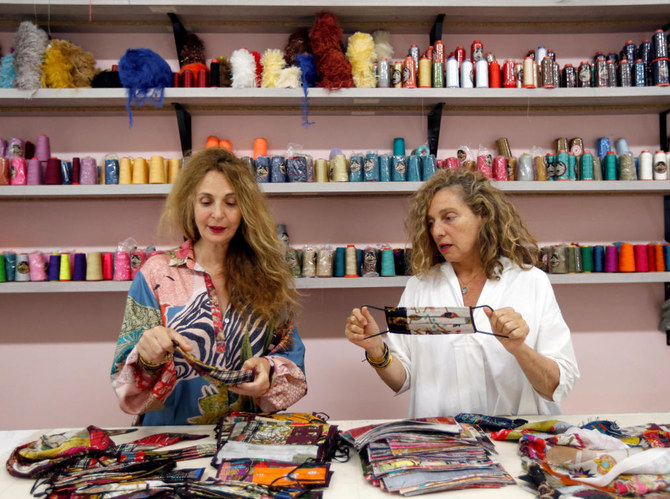
by reuters — BEIRUT: Beirut-based designer Bokja specializes in making upholstered furniture with vintage fabric but the studio’s workers now dedicate their time to sewing colorful silk face masks to curb the spread of the new coronavirus. Profits from the masks, costing about $35, go to nurses on the frontline of Lebanon’s fight against the disease, which has compounded woes in a country wrestling with economic meltdown. “I saw a nurse from the Rafik Hariri Hospital crying on TV…so we decided that part of the proceeds will go to them,” said co-founder Huda Baroudi. Baroudi’s business is one of several that have converted production of items like furniture and clothing to masks. She said nurses have even ordered some. “They help boost morale” said Baroudi. Lebanon has been under lockdown since mid-March to curb an outbreak that has infected 859 people and killed 26. Authorities are warning of a new wave after cases surged in recent days, as the government eased some curbs and allowed businesses to reopen. Safety rules at supermarkets, pharmacies and shops require people to wear masks. “Face masks are a sad thing but when we gave it this form, and each one is different, it took us back to Bokja’s ideology which is to find beauty in ugliness,” said Maria Hibri, the second founder of Bokja.
Although the high-end store and atelier were closed, staff received sewing machines and textiles to work from home. Beirut residents like Mustafa Ali have welcomed the colorful masks. He said traders and pharmacies hiked the prices of medical masks, so he sought a reusable option. “I wear a color based on my mood,” he said through a green mask. Other businesses have also begun to make masks, a rare opportunity as the pandemic hammers the collapsing economy. The local currency has plummeted and unemployment, inflation, and poverty have soared since last year. Eric Mathieu Ritter, founder of Emergency Room upcycled clothes design company, began sewing face masks for his family. “People started asking for them so I started selling them, he said. “The reaction was positive because of the prints, patterns. They’re bright. It allowed people to feel unique.” Ritter said he sought to keep mask prices affordable, but still enough to pay his employees. They sell for around $5 based on the parallel market rate. “They need to be able to live off of this work,” he said.



